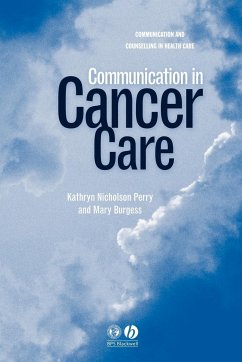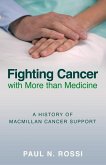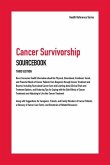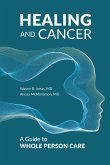This practical and concise publication explains how busy health professionals can integrate emotional support into the services offered to people with cancer.
Helps health professionals to develop the communication skills needed to understand and assist those affected by cancer.
Discusses the social and psychological problems faced by people with cancer.
Gives detailed information about the qualities and skills needed to act as a helper.
Provides practical tips on how to learn the skills discussed.
Hinweis: Dieser Artikel kann nur an eine deutsche Lieferadresse ausgeliefert werden.
Helps health professionals to develop the communication skills needed to understand and assist those affected by cancer.
Discusses the social and psychological problems faced by people with cancer.
Gives detailed information about the qualities and skills needed to act as a helper.
Provides practical tips on how to learn the skills discussed.
Hinweis: Dieser Artikel kann nur an eine deutsche Lieferadresse ausgeliefert werden.
'This is an important book. It deals in a detailed, well-informed and approachable way with difficult issues. It offers much-needed help to health care workers who want to communicate sensitively with cancer patients. Enlivened by vignettes which illustrate each point, it is wise, humane and practical. I commend it strongly to everyone who needs to understand and talk about cancer to those who have the disease.' Miles Little, Director, Centre for Values, Ethics and the Law in Medicine, University of Sydney
'I welcome this book which should become the standard text for undergraduates and postgraduates in the humanization of modern medicine. At last we have two texts that can stand side by side, Communication in Cancer Care and C: Because Cowards Get Cancer Too [by John Diamond], the heads and tails of the humane practice of oncology.' Michael Baum, Emeritus Professor of Surgery and Visiting Professor of Medical Humanities, University College London
'I welcome this book which should become the standard text for undergraduates and postgraduates in the humanization of modern medicine. At last we have two texts that can stand side by side, Communication in Cancer Care and C: Because Cowards Get Cancer Too [by John Diamond], the heads and tails of the humane practice of oncology.' Michael Baum, Emeritus Professor of Surgery and Visiting Professor of Medical Humanities, University College London








